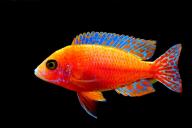New analysis reveals that there isn't strong evidence supporting current guidelines for psychological therapies in treating anorexia nervosa.
These findings suggest the need for more information and making individual trial data accessible to better understand treatment benefits for specific patient groups.
Let's find out how that's possible.

It doesn't work
The new experiment included 13 randomized controlled trials with a total of 1,050 people.
These trials compared psychological therapies to standard treatment in individuals receiving outpatient care for anorexia.
They measured ED symptoms, body-mass index (BMI), and the dropout rate up to 52 weeks of follow-up.
Some therapies showed modest benefits, but the recommended therapies didn't significantly differ from expert treatment as usual.
Specialists emphasized the importance of understanding effective treatments for anorexia, given its high mortality rate in psychiatric conditions.
Why it's important
The research clearly shows the gaps in existing evidence and the serious need for more and better work on actually effective psychological therapies for treating anorexia.
Since the data available was relatively limited in quality and quantity, this analysis should be considered exploratory, not confirmatory.
However, it underscores the need for more robust research in this area.
Specialists add that there has been progress in understanding non-specific factors that should be part of anorexia treatment.













